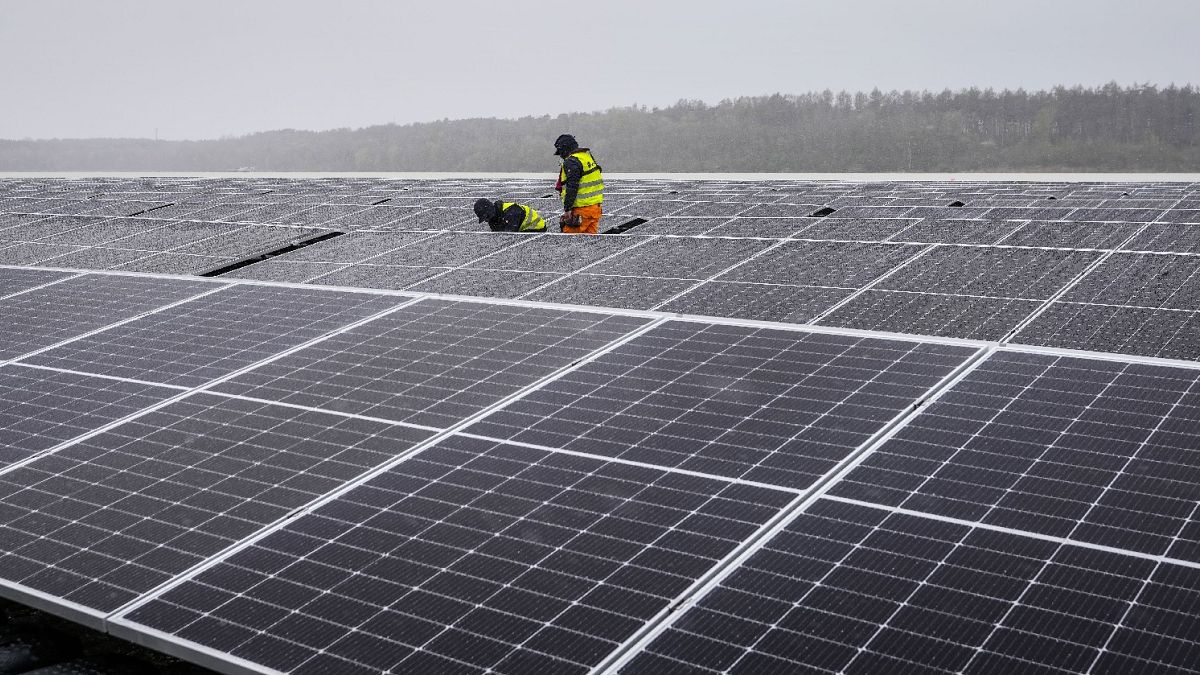Europe is stockpiling the same amount of solar panels as it has deployed, a new report has found.
According to Rystad Energy's Freedom from Fossil Fuels report, 40 gigawatts (GW) of solar panels are stored in warehouses across the European Union, equivalent to what was installed across the 27-country bloc in 2022.
If these panels were installed, they could replace seven billion cubic metres (bcm) of fossil gas, which should rise to 15 bcm at the end of the year as Rystad Energy forecasts that the number of panels in storage should grow to 100 GW.
For the energy research company, this is proof there are "significant bottlenecks and barriers" to solar installation.
"European countries need to expand training programmes for solar panel installers, address grid bottlenecks and streamline bureaucratic processes to get solar panels out of warehouses and onto the roofs of homes and businesses as fast as possible," Tara Connolly, Beyond Fossil Fuels Campaigner, said in a statement.
"This should be the top priority for governments across Europe trying to cut emissions and get Europe off gas rapidly," she added.
The EU has vowed to become carbon-neutral by mid-century and is accelerating its energy diversification away from fossil fuel due to Russia's war in Ukraine.
Before its aggression on Ukraine, Moscow used to provide 40% of the EU's imports of natural gas as well as about a quarter of oil imports and 70% of coal shipments. But the bloc has since slapped an embargo on most Russian oil and coal while it has drastically reduced imports of Russian gas by turning to alternative suppliers.
This dependency on Russia for energy and Moscow's weaponisation of it -- it cut off gas supplies through the Nord Stream pipelines to Western Europe -- have prompted the EU to double its target for renewable deployment by 2030 to 42.5% with member states urged to slash red tape for such projects.
